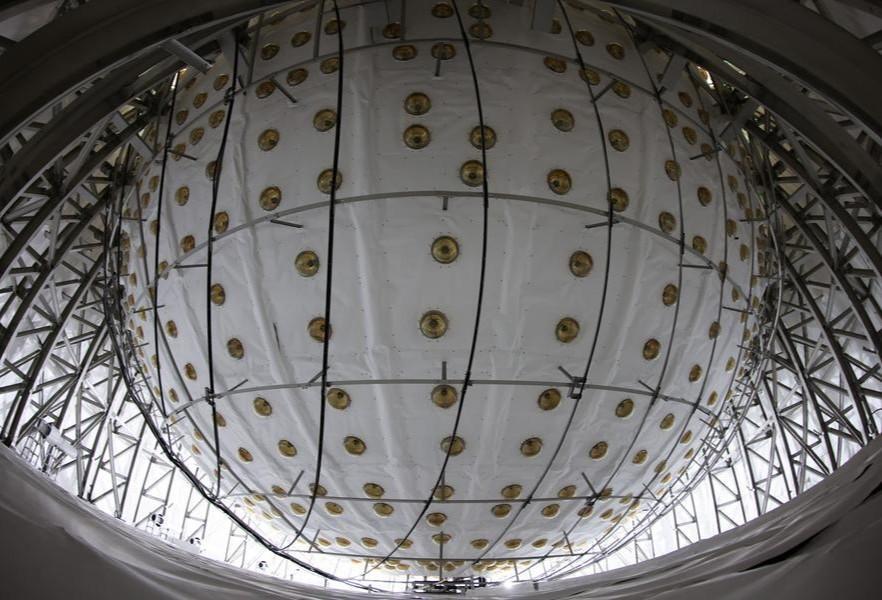
China Unveils World’s Most Powerful ‘Ghost Particle’ Detector
In a groundbreaking achievement, China has unveiled the world’s most powerful detector for neutrinos, also known as “ghost particles,” at the Jiangmen Underground Neutrino Observatory (JUNO) in the south of the country. The detector, situated 700 meters underground at the center of a 44-meter-deep water pool, has begun collecting data to better understand these elusive particles, which have no electric charge, almost no mass, and travel at almost the speed of light.
Neutrinos are some of the most mysterious particles in the universe, and scientists have been fascinated by them for decades. They are produced in vast quantities by the sun and other stars, and they can travel long distances through matter without being affected by it. However, they are extremely difficult to detect, as they interact very weakly with other particles and do not emit any detectable signals.
The JUNO detector is designed to overcome these challenges and provide scientists with unprecedented insights into the properties and behavior of neutrinos. The detector consists of a massive tank of liquid, surrounded by thousands of photomultiplier tubes that can detect the tiny flashes of light produced when neutrinos interact with the surrounding material.
The JUNO detector is capable of detecting neutrinos with energies ranging from a few tens of megaelectronvolts to tens of gigaelectronvolts, making it the most sensitive detector of its kind in the world. It is also designed to be extremely sensitive to the direction and energy of the neutrinos, allowing scientists to pinpoint their origin and track their paths as they travel through the detector.
The JUNO detector is not only a significant scientific achievement, but it also marks a major milestone in China’s efforts to become a global leader in scientific research and innovation. The detector was built at a cost of over 1.2 billion yuan (approximately $180 million), and it is expected to generate significant economic benefits for the region through the creation of high-tech jobs and the development of new industries.
The JUNO detector is also expected to make significant contributions to our understanding of the universe and the fundamental laws of physics. Neutrinos are believed to hold the key to understanding many of the mysteries of the universe, including the behavior of stars, the formation of galaxies, and the origins of the universe itself.
The JUNO detector is expected to provide scientists with a wealth of new data and insights, and it is expected to play a major role in the development of new theories and models of the universe. It is also expected to have significant practical applications, such as the development of new technologies for detecting and tracking neutrinos, and the improvement of our understanding of the behavior of matter and energy at the quantum level.
The JUNO detector is a testament to China’s commitment to scientific research and innovation, and it is expected to have a significant impact on the global scientific community. It is also a reminder of the importance of international cooperation in scientific research, as the JUNO detector was built in collaboration with scientists from around the world.
In conclusion, the JUNO detector is a significant achievement for China and the global scientific community, and it marks a major milestone in the development of our understanding of the universe and the fundamental laws of physics. The detector is expected to provide scientists with a wealth of new data and insights, and it is expected to have significant practical applications in the development of new technologies and our understanding of the behavior of matter and energy at the quantum level.
Source:
https://english.news.cn/20250826/b3de94b5894d4ad9ae83b94432376981/c.html






